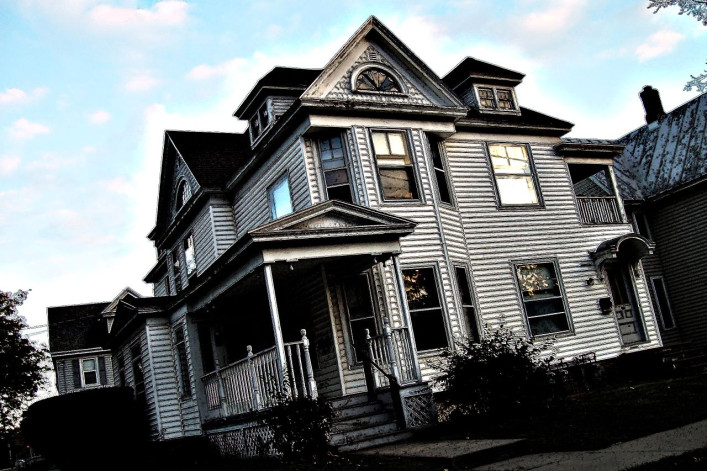House of horrors: what if your apartment has a terrible past?

Whether it's the smell of stale smoke or neighbors disgruntled by the previous resident, every apartment comes with a past. Some, though, are worse than others. Last week, we read about a St. Louis woman whose rental was the former home (and torture chamber) of an alleged serial killer. After seeing a documentary about the murders on TV, she convinced her landlord—the alleged's killer's mother—to let her out of the lease.
While this was certainly an extreme nightmare, it does raise the question of how renters, buyers and sellers should deal with properties with spooky backstories.
If you're a superstitious renter or buyer, it's technically on you to ask specific questions about a place or Google the address before you sign a deal. In New York State, a "grisly crime" or death in a home isn't considered a "defect" brokers are obligated to report, The Real Deal notes.
In 1991, however, a state appeals court did rule that a buyer could get out of a contract after finding that the place was widely known as a haunted house. Indeed, for sellers across the country, homes with a "stigma" generally sell for much less than their market value, so much so that appraiser Randall Bell, nicknamed the "Master of Disaster," has made an entire career of working with sites of murders and supposed hauntings.
That's why it's better for sellers to "disclose an apartment's history from the beginning, and let the person make an informed decision," advises Citi Habitats broker Shannon Aalai, rather than face the possibility that the new resident will get spooked, or litigious, after the fact.
Depending on the situation, she says, "I'd probably try to spin it with something lighthearted, like a haunted open house. Find a way to disclose the information without making it a big deal."
As for the effect on property values, Bell's rule of thumb is reportedly a 15 to 25 percent decrease in value for the first two or three years after something bad happens, then the price gap closes over the next year to 25 years.
And, of course, New Yorkers may have a stronger stomach for the gruesome—or at least a healthy ability to compromise, given how expensive real estate is here.
"I think there are a lot of people who purposely don't ask [about an apartment's past]," Aalai says. "People will overlook a lot for a good price. I think if you gave most New Yorkers the choice between a cheaper apartment where something terrible had happened versus a more expensive option without that history, they'd go for the cheaper one."
Related:
My new apartment's infested! My broker should refund his fee and help me find a new place, right?
What 68 New Yorkers wish they'd known before they moved in
For Woodlawn Cemetery's history chief, a coffin serves as a coffee table
Is a dated Uptown duplex with a Katharine Hepburn backstory worth $3,500 a month?
Sinkholes, sex parties, and other freaky apartment mishaps: what's insured and what's not?


























